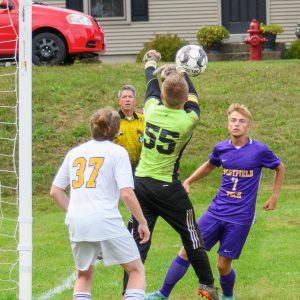Annual Town Meeting season is upon us, providing the opportunity for each registered voter to participate in one of the most basic forms of democracy, the town meeting. There are few opportunities, even in a democratic government, for an individual voter to have a direct say in determining the direction their government will take for the coming year. While we all have the opportunity to vote for our representatives in government, whether it be our local selectboards, our state representatives, our federal representatives or any of our executives, once the vote is over our role, at best, becomes one of lobbying government officials because they really don’t have to worry about meeting everyone’s needs until the next election. With terms of office running from 2 to 6 years in state and federal elections, this leaves much time for elected officials to operate without the consent of the majority of voters.
Contrast this with the traditional town meeting (a rarity outside of New England) where everyone has the opportunity to voice their opinion, make amendments to the warrant articles (changing the wording, changing the amounts recommended by elected officials, adding related items), question the reasoning used to both put the item on the warrant and the impact that item has on the town, and finally, to vote for or against the warrant article. Not only do town meetings set procedure and protocol for each town (i.e., changes in by-laws) but they also set the limits for expenditures for the town (and, depending on how the budget is voted, may set limits by line item). Once this is done, town officials are limited in the changes they can make over the next year, unless they come back to a special town meeting to request changes.
Despite this power for the individual voter, it’s always surprising to see how few voters actually attend the most important meeting in a year’s worth of town operations and the number of times that towns have to postpone meetings due to a lack of a quorum. One often hears the refrain that you give up your right to complain about how government is working if you don’t vote and that seems to apply without doubt to the local town meeting. While it’s true that you may not be on the winning side of every vote at an annual town meeting, you’ve at least had the opportunity to express your views, make your argument to convince others, and share your concerns.
It’s also interesting to point out that each town’s citizens have the legal right to add items onto the annual town meeting warrant for consideration by simply getting enough people to petition their selectboard in the legally designated manner. Thus, even if a selectboard is opposed to the adding an item to the warrant, there are controls in place to ensure that topics of concern can be raised and acted upon in the public forum known as the annual town meeting (note that this also applies to special town meetings that can be called throughout the year). This is one more way that the annual town meeting is so democratic in nature.
As Jefferson noted in numerous ways, it is a duty of the individual to ensure that they are educated on the items being discussed and voted upon and the responsibility of the government to ensure that a general, free, and public education is available to all to prepare individuals to read, write, compute and understand the democratic method. Thus schools offer many opportunities for students to participate in democracy that extend far beyond the classroom such as participation in student government, athletics, clubs, and a host of life experiences. It’s not difficult for a small group to note that if everyone does not participate in the effort to complete work, then understanding differences in viewpoints, the collaboration required to get everyone on board, and the decision making process all become much more difficult. We’re always hopeful that those lessons stay with students allowing them to become active, committed and productive citizens when they reach the age that they too are allowed to make their mark on the operations of society through participation in the democratic process.








